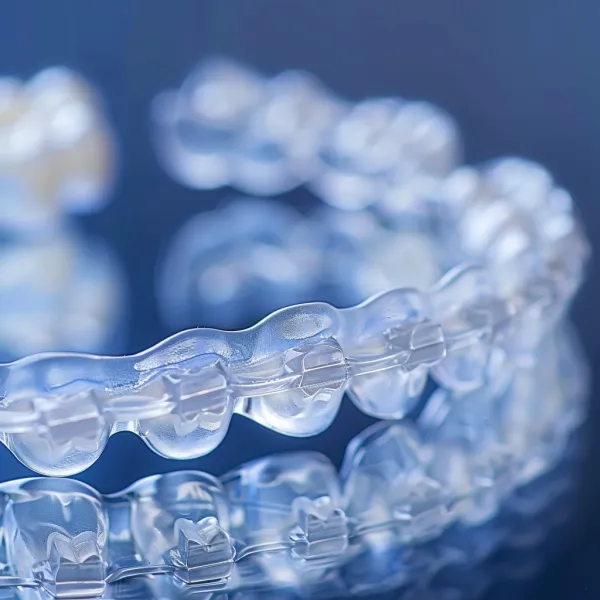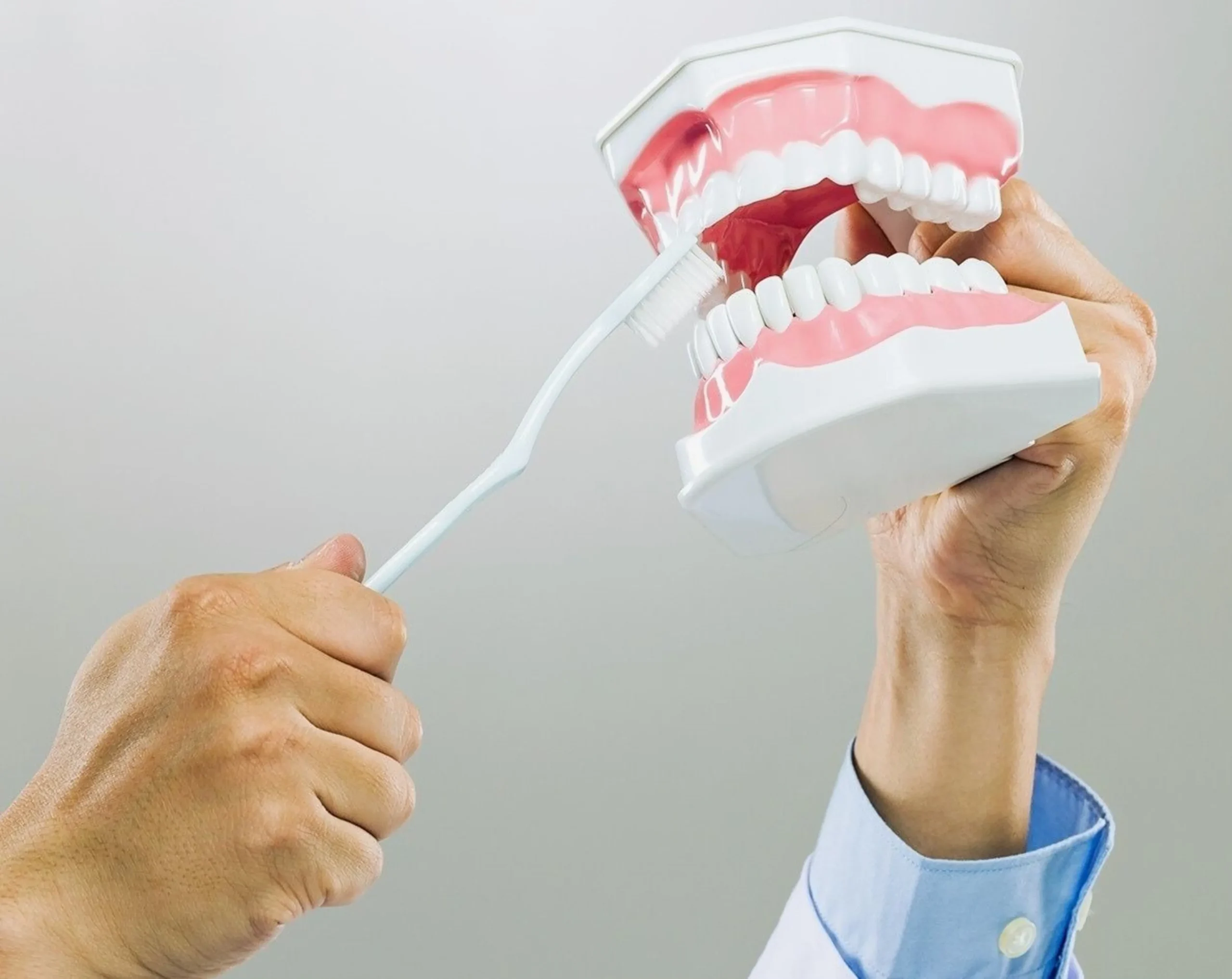What Is TMJ Pain?
First, TMJ is a commonly used acronym for the Temporomandibular joint. This joint is located just in front of your ears on both sides of your head and acts like a hinge that connects your lower jawbone to the upper part of your skull. It’s the primary joint involved in actions like speaking and chewing.
Need assistance? Contact a TMJ Dentist +1-773-915-6015
TMJ pain is a common term for the pain or discomfort experienced when there are any disorders with the Temporomandibular Joint. Many factors can cause such conditions, characterized by inflamed muscles or ligaments around the joint. Inflammation and irritation around the joint also lead to TMJ pain, and these symptoms can be excruciating while some significantly affect your quality of life. If you’re experiencing any form of TMJ pain, it’s essential to see a specialist as soon as you can so you can get your life back. You can find TMJ dentist near me by Yelp Search.
Cause Of TMJ Pain And TMJ Disorders
It is often difficult for specialists to determine the direct cause of TMJ pain. The bones that meet to form the TMJ are covered with cartilage and separated by a small articulating disk that serves as a shock absorber.
Need assistance? Contact a TMJ Dentist +1-773-915-6015
A disorder at this joint may occur if something incorrectly shifts the articulating disk out of place or the cartilages covering these bones become damaged by arthritis. The disease could be caused by many factors together instead of one. These include genetics, arthritis, or dental behaviors. Common causes of TMJ pain include:
Injury to the jaw joints
Dislocation of the articulating disk of the joint
- Bruxism (teeth grinding and Clenching)
- An improper bite – severe underbite or overbite
- Stress
- Connective tissue diseases
- Trauma
- Connective tissue diseases
Common Symptoms of TMJ disorders
- Aching in the ear region
- Pain behind the eyes and sunlight sensitivity
- Jaw pain or tenderness
- Ringing in your ears (tinnitus), hissing or buzzing in the ears
- Swelling around your jaw or ear
- Severe headaches
- Clogged itchy ears without infection
- Vertigo, dizziness
- Swallowing difficulties
- Poor mobility in the neck
- Tooth pain
- Radiating pain to the neck and sometimes the shoulders
- Sharp pain when you open your mouth
- Jaws that lock in place when you open or close your mouth
- Painful Chewing
- Clicking or popping sounds when you open and close your mouth
What Is The Best Doctor To Treat TMJ Pain?
If you are experiencing TMJ pain, you might wonder what kind of doctor you should see or what type of dentist works on TMJ. While you could get a general diagnosis from almost any type of doctor – general physician, ENT, dentist- the best doctor to treat TMJ pain is a dentist who has specialized in the condition, a TMJ specialist.
Who Is A TMJ Dentist?
A TMJ specialist is a dentist who specializes in the diagnosis, management, and treatment of temporomandibular joint dysfunction and disorders. A TMJ specialist is typically a regular dentist who has received additional study and training in craniofacial regions, especially the temporomandibular joint.
Can TMJ Be Treated By A General Dentist?
A general dentist can diagnose and provide primary treatment and care for TMJ pain. However, if you need professional help beyond basic medication, you will need to see a TMJ specialist. A general dentist usually doesn’t have the specialized skills required to effectively take care of TMJ disorders.
What Other Types of Doctors Can Treat TMJ Pain?
General dentists, ear, nose, and throat doctors, and general physicians can diagnose and treat mild forms of TMJ disorders and pain.
How To Find the Best TMJ Doctors Near You
In your search for a doctor to help you with your TMJ pain, the chances are that you have typed in “TMJ specialist near me” or some variation. However, finding a suitable and reliable specialist to treat your condition is a far more intricate process than simply googling “dentist for TMJ near me.”
By doing that, you will indeed find lots of TMJ specialists near you per your search. However, your search results will show up with no regard to the quality of service and the qualifications of these specialists. To help you get the best TMJ specialist for your condition, we have compiled a list of searching ways to help you find the best and most qualified near you. Google local search is a good option for finding TMJ dentist in your area.

Use an online service search tool.
While it’s easy to open up your search engine and type away, you will get better-targeted responses by using an online tool. In today’s world, you can find nearly every service online if you look well enough, and this applies to finding a dentist that can help you with your TMJ pain.
Start by using high-yield search phrases like “Dentist for TMJ Pain near me” and “Dentist specializing in TMJ near me.” Platforms like Yelp are great to search through a well-organized service directory. The results also come with filters to narrow down the specifications you need for your condition.
Other online service search tools on which you can find TMJ specialists near you include Foursquare and www.authoritydental.org. Authority Dental is especially great for finding dentists and specialists closest to you so that you will find some help there. These platforms also come with filters and reviews that contribute to deciding which dentist is best for you.
Online Reviews
Before the internet became popular, referrals and “word of mouth” reviews were all people had to go with. Today, you can find proof of a service provider’s qualifications with a click of a button. Several businesses have now migrated to the internet, and a large percentage of dental practices have established their online presence.
This means that you can not only find them online, but you can also see what other people have to say about them. After you perform a thorough search online and have found a couple of specialists near you, it is time to read reviews online to ensure that your potential pick has a reliable and impressive history.
Online Reviews will give you information about the services and the quality of services these TMJ specialists offer. You essentially find out how they work and how they fare with customer service. If you find lots of positive reviews from previous patients, that’s a sign that the specialist will probably offer you great service and great value. However, if there seems to be a lot of negative or unsatisfied reviews, you would do great to avoid picking the specialist in question. The last doctor you want to treat your delicate TMJ disorder is one with a poor reputation preceding them.
When you finally find a TMJ dentist that is qualified enough and has excellent excellent reviews, you can book an appointment with them. Meeting them in person will help you gauge their professionalism and ultimately help you know if they are the right fit for you. Yelp directory make filtering trying to detect reviews which are not reliable.

Trusted Referrals
If you have friends or family who have experienced TMJ pain and have seen a specialist, ask them for recommendations or referrals. Ask them if they know any TMJ dentists they trust and ask them their experiences with the specialist.
If you have a general physician or dentist, ask if they have any recommendations you can try out.
Don’t Be In A Hurry To Choose – Book An Appointment With Each TMJ Dentist.
Although your situation is dire and you are in a lot of pain, it’s essential to choose the best TMJ doctor. As such, you shouldn’t be in a hurry when searching. Instead, book a consultation with all the dentists that have made it to the final vetting stage of your search. You will meet them in person and learn more about their services and your condition. You will also be able to decide if you are comfortable with the dentist and their manner of service.

How To Know If A TMJ Specialist Is Reliable
There are many ways to determine if a TMJ dentist is reliable and suitable for you to work with. From the way other patients talk about them to the kinds of qualifications they have, every dentist has a unique character that makes them trustworthy. Here are a few factors to consider to know if your TMJ doctor is reliable and qualified to treat you:
Certification – What qualifications to look out for in a TMJ specialist?
A TMJ specialist that is fit to treat you and anyone else must have the proper certifications to do so. This includes a degree – a Doctor of Dental Surgery degree or a Doctor of Dental Medicine degree – both from an accredited dental school. In addition to this degree, they must have specialized in oral and maxillofacial treatment or have a fellowship in orofacial treatment.
Before March 2020, TMJ specialists were not certified as specialists under the American Dental Association. However, following a much-needed review, the field is fully accredited. This means you can crosscheck your TMJ specialist’s certification before hiring them.

Reviews
As stated earlier, reviews are an excellent and free way to assess your TMJ specialist’s reliability. You can find trustworthy reviews on the specialists you’re considering on platforms like Yelp and other social media platforms. You can also hear what friends and family have to say and check if they have any referrals or recommendations.
Accessibility
It’s essential to make sure that your TMJ doctor is easily accessible. This means that it’s best to find a specialist that practices close to your place of residence. You should also consider their practice’s working hours and decide if they work well with your lifestyle and schedule. This way, you can always see the specialist as quickly and as frequently as you need to, especially if an emergency arises.
Insurance Policies
Although most dental practices accept insurance, some have varying insurance policies. Before choosing your specialist, find out if they accept your insurance if you have dental insurance. While doing your “TMJ dentist specialist near me” searches, remember to watch for detailed insurance policies.
Competence
Although this is a quality you can only assess on a first consultation meet, it’s important to study your specialist’s competence and skill. This means how they seem to embody the knowledge and skills required to treat your condition. From the kinds of questions that they ask to their interpretation of your condition, you can determine if the TMJ doctor in question will be reliable in the future.
If you want to go the extra mile, do a quick search online to see what the doctor has been up to career-wise. This includes recent research studies, articles, and talks related to the field.
Experience
Although this isn’t a foolproof way to gauge a specialist’s reliability, it can be a great way to assess their skill and competence. Conduct a few directed searches online after your “dentists who specialize in TMJ near me” queries. You can discover how long the dentist has been working. Take the other factors into consideration before this as it is not always a certain measure of reliability.
Compassion
If you are experiencing TMJ pain, you need a doctor who will help you with compassion. Only a doctor truly cares about you that can treat you as best as you would like. This is another critical factor to assess on your first appointment/consultation.
How Much Does a TMJ Dentist Cost?
Many people who seek treatment from a TMJ pain specialist are often concerned about cost. It is important to note that the cost of treatment for TMJ disorder varies based on several factors. These factors include:
The type of disorder causing the pain: As earlier stated, there are many causes and combined triggers for TMJ pain. Once your TMJ doctor identifies or narrows down the likely causes, they can then begin to estimate how much your treatment will cost.
The severity of the disorder: Sometimes, TMJ pain can come with mild symptoms that the doctor can treat with simple techniques or medication. In those cases, the cost will be low, and the treatment includes simple solutions like stretching, pain relievers, and hot or cold packs. The average cost for these mild treatments ranges between $150 to $200. Physical therapy can cost up to $2000, while more severe disorders require closer inspection and treatments.
The treatment approach required: Some severe cases of TMJ disorder require surgery, and, of course, this comes at a high cost. While non-invasive procedures cost less, invasive approaches (surgery) will incur a higher price.
Specialists are more inclined to try non-surgical treatments before resorting to surgery. Specialists divide surgery itself based on the complexity of the procedure. For minor surgeries like a minimally invasive arthrocentesis – surgery to remove excess fluid from the joint – you might spend about $300.
Some severe conditions or disorders may require both, including costly devices like orthodontics, crowns, medication, and mouthguard. Mouthguards typically cost between $100 to $1,000. This could bring your dental bill to about $10,000. Diagnostic surgeries like arthroscopy cost between $5,000 to $8,000, while far more complex approaches such as total joint replacement may cost as high as $40,000 – $70,000.
Is TMJ Covered By Medical Or Dental Insurance?
In most places, medical insurance is the primary insurance for TMJ disorders. However, many insurance companies do not cover TMJ disorders. Those offering may provide some decent coverage for a listed number of procedures. Check with your insurance provider for techniques they cover and check if your dentist accepts the coverage the insurance company is offering. Basic insurance coverage on non-surgical TMJ treatment typically includes:
● Bite splints and dental appliances
● Relaxation therapy
● Cognitive therapy
● Non-steroidal anti-inflammatory medications (NSAIDs) and non-opiate pain relievers (NSAIDs)
● Acupuncture
● Physical therapy
● Manipulation for fracture or dislocation reduction
Surgical procedures that insurance companies mainly cover include:
● Replacement of a joint
● Arthrocentesis
● Arthroscopy
● Repositioning of the meniscus or the disc
● Grafts of cartilage and other tissues
● Arthroplasty
Preparing For A TMJ Dentist Visit
Before you finally make the trip to the doctor’s office, it is vital to prepare as best as possible. A great way to do this is to explore are home care techniques to help relieve the pain.
Heat and Ice: TMJ pain always responds favorably to hot or cold treatment. Depending on what you have or what you can spare, you can use a washcloth, plastic zippered bag, or an ice pack. Using heat, you can also reduce your TMJ pain. Read here what to expect from first appointement with TMJ dentist.
Jaw Exercises: Depending on the severity of the pain, you can exercise your TMJ for a while before you meet with the doctor. Ensure that you stick to simple techniques to help with the discomfort.
Pain Relievers: To keep yourself as comfortable as you can in anticipation of your consultation, you can purchase over-the-counter pain medication to help ease your pain.
Stay Away From Hard Foods: Before your visit with the specialist finally comes around, try your best to avoid hard foods. Consume soft foods only so that you don’t escalate this condition, thus complicating your TMJ doctor’s work.
Gather your info: Before showing essential up at the doctor’s, gather any information that might be necessary to your treatment. This includes any previous health records, medications prescribed, and additional information on any jaw-related surgeries you might have had. This makes your doctor’s work a little easier as they know more about you and your condition.

What To Expect From Your First TMJ Appointment
Your doctor usually fills your first appointment with extensive questions about your jaw pain and discomfort. Some doctors might provide you with a questionnaire to fill, asking specific questions to help their diagnosis. These questions may include:
● Do you feel any pain, ringing, or fluid accumulation in one or both of your ears?
● Do you feel any clicking or popping when you open and close your mouth?
● Do you grind your teeth often?
● Is it painful or difficult to open your mouth fully?
● When did the symptoms begin?
● How seriously does the pain affect your daily life and routines?
● What actions or activities make the pain more intense
Your dentist will also study your medical history for any other conditions that could cause or mimic TMJ disorder.
Physical Examination
Expect your TMJ dentist to conduct a thorough physical examination when you get to their office. They will look closely at your jaw, head, mouth, and neck area, carefully studying the bone Alignments and movements.
The physical examination helps the dentist study your temporomandibular joint and watch how it reacts when in use. At this stage, they can identify a few problems and prescribe medication or other treatments. For more severe cases, they will proceed to the next step.
Diagnostic Imaging and Impressions
Depending on what your dentist finds during their physical examination, they may conduct impression procedures for models of your teeth and bite. This way, they can closely inspect your dentition, grinding, and chewing patterns.
If your condition requires it, your specialist may order diagnostic imaging to access the state of the TMJ, monitor the extent of the disorder, and determine an individualized treatment plan that works for you. Typical diagnostic imaging procedures include standardized routine and panoramic x-rays, CT scans, MRI scans, scintigraphy, a specialized bone scan.
Routine and panoramic x-rays: Your specialist can perform these x-rays within their office and use them to study your teeth, sinuses, upper and lower jaws, and the bony structure of your temporomandibular joints.
CT scan: This is a more in-depth imaging process used to create a 3D image of the bony structure of your temporomandibular joints.
MRI Scan: CT scans rarely provide a clear image of the joint’s articulating disc and soft tissue. An MRI scan can capture these delicate details so your TMJ dentist can study the joint better.
Scintigraphy: Your dentist conducts this scan by injecting a special dye into your jawbones. Once the bone absorbs the stain, the doctor scans them to examine the integrity and status of your bones.
Benefits of TMJ Dentist Over General Dentist For TMJ Pain
Many types of doctors might diagnose your TMJ pain and disorder. These include general doctors, general dentists, and ear, nose, and throat doctors (ENT). However, seeing a TMJ specialist will get you the quickest and most specialized treatment for your condition.
TMJ specialists are better trained to assess and care for this condition far better than any other type of doctor or dentist. If you want to treat TMJ pain, it’s best to see a TMJ specialist. Whatever you do, do not ignore any symptoms of TMJ pain, as it could get worse if you leave it untreated for an extended period.





